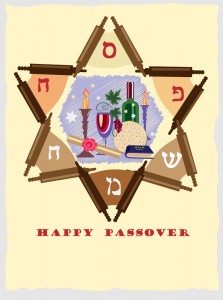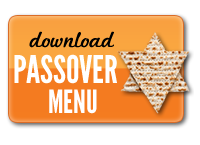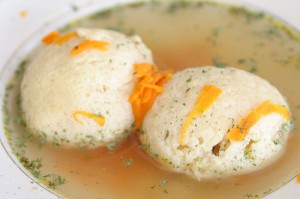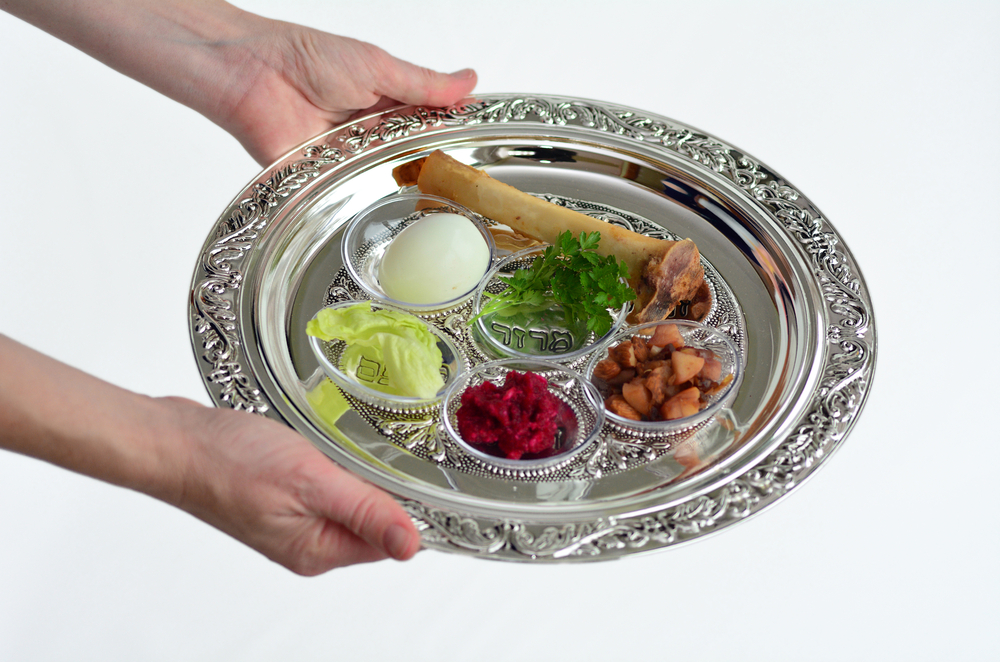The Passover Seder dinner is a yearly event for many Jewish families, and it’s celebrated at the start of the week-long holiday of Passover. Families often set a traditional table for the Seder where the entire family gathers to hear a retelling from the Book of Exodus.
Passover is a festival that symbolizes the flight from Egypt, as well as from hundreds of years of slavery, by the Jews over 3,000 years ago. One of the books in the Hebrew Bible directs Jews to remember that historical event, and they do during the first Passover dinner. The traditional retelling is widely observed by Jews across the world.
Observing Passover has even found its way into other faiths with many Christians and Catholics choosing to recognize the historical significance of the event. Passover occasionally coincides with the Christian observation of Easter in March or April.
One of the remarkable things about the Seder is that it’s celebrated in a similar fashion across many different countries all over the world. The same foods decorate the traditional Passover Seder Plate whether you’re celebrating in Dallas or New York City.
Traditions of the Passover Dinner
 One of the most notable features of the Passover dinner is the exclusion of leavened grains and breads from the meal, as well as the traditional foods required at the meal. The symbolism behind unleavened bread is the speed and haste required during the flight from Egypt. The Jews didn’t have time to wait for the bread to rise before they fled.
One of the most notable features of the Passover dinner is the exclusion of leavened grains and breads from the meal, as well as the traditional foods required at the meal. The symbolism behind unleavened bread is the speed and haste required during the flight from Egypt. The Jews didn’t have time to wait for the bread to rise before they fled.
These special food requirements often require the assistance of kosher restaurants in Dallas that offer special Passover catering.
An observant household would recognize the fifteen segments of the Passover Seder including Kadesh, Urechatz, and Karpas, as well as many more. Each segment features an action such as reciting a blessing or eating a specific type of food.
For example, Kadesh is the first part and is the recitation of a blessing in honor of Passover. Another segment is Yachatz during which one of the three matzahs on the table is divided. One part is hidden, and the other part is returned to the pile.
The Passover Menu: Food and Freedom
The traditions that involve food at the Passover meal are meant to symbolize freedom, and families will use the Seder plate with several specific items that each have a particular meaning. The plate will include a lamb’s shank bone, which is called a zeroah, which is meant to symbolize a Passover sacrifice.
In addition, the plate will feature a roasted egg called a beitzah, which is meant to symbolize a temple sacrifice, as well as the cycle of life. A third piece is a green vegetable, which is called a karpas, that’s used to symbolize spring. A fourth element is an acidic herb like horseradish, called a mar’or, which is meant to represent slavery.
A haroset, which is a paste of fruit and nuts, is added to represent the mortar that was used to construct the pyramids of the Egyptian pharaohs. The final piece of the Seder plate is a bowl of salt, which is meant to symbolize the tears of the slaves.
Widely Celebrated in Different Ways
Although the Passover Seder is one of the most frequently celebrated events in Judaism, there are subtle differences in the traditions that families observe. Sometimes, the meal isn’t as elaborate or ceremonial and is celebrated in a low-key or fun manner. Some couples may even celebrate with friends who aren’t Jewish.
 A couple or group may visit a Passover restaurant like Cindi’s New York Deli and Bakery that features traditional foods like gefilte fish, chopped liver, and matzoh balls. Visiting a Jewish deli in Dallas is the best way to ensure a kosher meal for Passover Seder. Such a visit is also helpful for anyone planning a Passover Seder, who isn’t aware of every part of the traditional meal.
A couple or group may visit a Passover restaurant like Cindi’s New York Deli and Bakery that features traditional foods like gefilte fish, chopped liver, and matzoh balls. Visiting a Jewish deli in Dallas is the best way to ensure a kosher meal for Passover Seder. Such a visit is also helpful for anyone planning a Passover Seder, who isn’t aware of every part of the traditional meal.
Observing kosher laws is a little challenging during Passover, and a letter “P” on food that’s kosher means that it’s appropriate for Passover. Making food from scratch for Passover might take several days, so catering is a common feature today for Passover Seder meals.
Passover is a serious yet joyful celebration that is often seen as an important time for the family to gather, even if they don’t regularly eat together. Passover Seder is filled with simple yet impactful meanings as far as the menu is concerned. Planning ahead for the occasion is easiest with help from restaurants like Cindi’s NY Deli that are well-versed in the traditions and requirements of the holiday.
